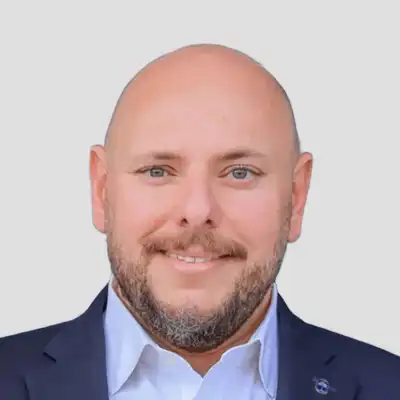Q:What does celebrating excellence mean to you as a leader?
A:Celebrating excellence is about recognizing the passion, resilience, and commitment that drive extraordinary results. It's not just about outcomes but the mindset behind them—continuous learning, adaptability, and the courage to challenge the status quo. I believe in fostering a culture where achievements, big or small, are acknowledged, and people feel valued. In one of my previous roles, I launched a performance-driven recognition program that directly linked excellence to career progression, ensuring it became ingrained in the organization's culture. Recognition fuels engagement and innovation—when we celebrate excellence, we inspire ownership, push boundaries, and raise the bar for future success.
Q:Can you share a defining moment in your career where you led a complex organizational transformation?
A:One of the most transformative projects I led was the strategic realignment of an HR function across multiple entities. The challenge was not just structural but behavioral—shifting HR from an administrative role to a strategic enabler of business success. The transformation involved harmonizing policies, streamlining operations, and embedding a unified people strategy while respecting cultural and market-specific nuances. By engaging leaders, empowering teams, and using data-driven insights, we created a more agile, people-centric organization with improved performance, higher engagement, and reduced turnover. This experience reinforced that true transformation requires both operational efficiency and a mindset shift at all levels.
Q:How do you encourage continuous improvement and a mindset of excellence among your teams?
A:Excellence is a habit, not an act. I cultivate it by fostering a learning culture where feedback is encouraged, experimentation is supported, and failures are seen as growth opportunities. In one instance, I introduced an Innovation Lab, providing employees with a structured platform to propose and test new ideas. This initiative led to operational improvements and encouraged a culture of proactive problem-solving. Additionally, I have developed mentorship and leadership development programs that enable knowledge-sharing and career progression. Most importantly, I lead by example—demonstrating curiosity, resilience, and the pursuit of continuous improvement. When people see that excellence is both expected and rewarded, it becomes a natural part of the organization's DNA.
Q:What's the biggest leadership challenge you've faced, and how did you overcome it?
A:One of the toughest challenges I've faced was driving cultural transformation in a legacy organization with deeply ingrained mindsets. Resistance to change was high, and siloed thinking created barriers to progress. To navigate this, I focused on building trust—engaging stakeholders at all levels, aligning transformation with business objectives, and delivering quick wins to build momentum. For example, introducing a more transparent performance management system helped shift perceptions by demonstrating fairness and accountability. Additionally, establishing employee listening forums allowed concerns to be heard and addressed, reinforcing a culture of trust. Over time, what started as resistance turned into active participation in the transformation journey.
Q:What key leadership principles have guided you in shaping impactful HR strategies on a global scale?
A:Three core principles define my leadership approach: People First, Business Aligned, and Future Ready. People are at the heart of any transformation, so HR must be a strategic partner rather than a support function. Aligning HR with business goals ensures measurable impact and long-term sustainability. In a previous role, this principle guided an organization-wide restructuring, allowing business leaders to take full ownership of their teams, improving decision-making agility and operational efficiency. The Future Ready aspect led to the integration of AI-driven talent analytics, allowing for predictive workforce planning and better talent retention strategies. By balancing these principles, I've developed HR strategies that drive engagement, innovation, and global business success.
Q:Who has been your biggest inspiration in leadership?
A:I am deeply inspired by visionary leaders who combine business acumen with strong ethical values. One such leader, whom I've had the privilege to work with, built a multi-industry enterprise while maintaining a steadfast commitment to integrity and people-centric leadership. His ability to make bold, strategic decisions while staying true to his values has greatly influenced my leadership style. From him, I've learned that leadership is not about authority but about influence, resilience, and the ability to empower others. Great leaders don't just focus on business growth; they create sustainable legacies by investing in people.
Q:What's your advice for HR leaders striving for global impact?
A:Think beyond traditional HR—be a business leader first. The most impactful HR strategies are those that are deeply embedded in the business model and aligned with financial and operational goals. In one of my roles, I transformed workforce planning by linking it directly to profitability, ensuring that HR was seen as a strategic driver of success. Embracing digital transformation, leveraging data-driven decision-making, and building agile, inclusive workplaces are key to staying ahead in an ever-evolving landscape. But above all, lead with authenticity and purpose—employees don't follow titles, they follow those who inspire and empower. HR should not just support business growth; it should shape the future of work.
 Interview
Interview
